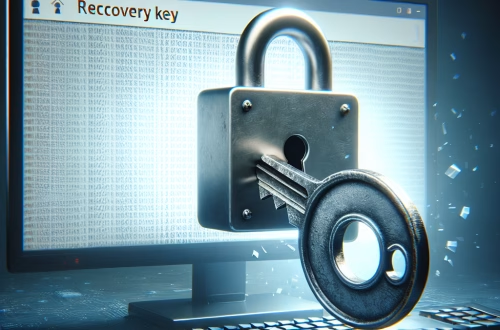BitLocker Vs Windows EFS Encryption Explained:
BitLocker and Windows EFS (Encrypting File System) are two encryption technologies in Windows, but they serve different purposes. BitLocker provides full-disk encryption (FDE), securing the entire drive, including the operating system, while EFS encrypts individual files and folders at the NTFS level. BitLocker is ideal for protecting data in case of device theft or loss, whereas EFS is useful for securing specific sensitive files on a per-user basis. BitLocker requires a Trusted Platform Module (TPM) for optimal security, while EFS relies on user certificates and keys stored in the Windows profile. Common triggers for BitLocker activation include hardware changes or failed authentication attempts, while EFS encryption occurs when users manually enable it on files or folders.
What This Means for You:
- Immediate Impact: Choosing between BitLocker and EFS affects how your data is secured—BitLocker locks the entire drive, while EFS allows granular control over individual files.
- Data Accessibility & Security: If you lose access to BitLocker (e.g., forgetting the recovery key), your entire drive becomes inaccessible. With EFS, losing the user certificate may render encrypted files unrecoverable.
- System Functionality & Recovery: BitLocker recovery requires a 48-digit key or TPM reset, while EFS recovery depends on backing up encryption certificates.
- Future Outlook & Prevention Warning: Always back up BitLocker recovery keys and EFS certificates to avoid permanent data loss. Use BitLocker for full-disk protection and EFS for selective file encryption.
BitLocker Vs Windows EFS Encryption:
Solution 1: Managing BitLocker Recovery Keys
If BitLocker locks you out due to a hardware change or failed authentication, the recovery key is essential. To retrieve it, check your Microsoft account (if linked) or organizational Active Directory. Alternatively, use the manage-bde -protectors -get C: command in PowerShell to view recovery key details. If the key is lost, data recovery becomes nearly impossible without third-party tools.
Solution 2: Recovering EFS-Encrypted Files
If an EFS-encrypted file is inaccessible due to a corrupted user profile, restore the original certificate and private key from a backup. Use the Certificate Manager (certmgr.msc) to import the .PFX file. If no backup exists, Windows provides no native recovery method—third-party tools like Elcomsoft Advanced EFS Data Recovery may help.
Solution 3: Disabling BitLocker Temporarily
Before major hardware upgrades (e.g., replacing a motherboard), suspend BitLocker to prevent lockout. Run manage-bde -protectors -disable C: in an elevated command prompt. Re-enable it afterward using manage-bde -protectors -enable C:.
Solution 4: Backing Up EFS Certificates
To prevent EFS data loss, export certificates via Certificate Manager (certmgr.msc). Right-click the EFS certificate, select All Tasks > Export, and save it as a password-protected .PFX file. Store it securely offline.
People Also Ask About:
- Can BitLocker and EFS be used together? Yes, but BitLocker encrypts the drive first, while EFS adds file-level encryption.
- Does EFS work on non-NTFS drives? No, EFS requires NTFS.
- Can BitLocker encrypt external drives? Yes, via BitLocker To Go.
- What happens if I delete an EFS certificate? Encrypted files become unreadable unless restored from backup.
Other Resources:
Suggested Protections:
- Store BitLocker recovery keys in multiple secure locations (e.g., Microsoft account, USB drive).
- Regularly back up EFS certificates and private keys.
- Enable TPM + PIN for BitLocker to enhance security.
- Avoid EFS for system files; use BitLocker instead.
Expert Opinion:
BitLocker is the gold standard for full-disk encryption in enterprise environments, while EFS remains useful for securing sensitive user files. However, EFS’s dependency on user certificates makes it riskier for long-term data retention. Always combine BitLocker with EFS for layered security, but prioritize BitLocker for system-wide protection.
Related Key Terms:
- BitLocker Recovery Key
- EFS Certificate Backup
- TPM (Trusted Platform Module)
- NTFS Encryption
- Full-Disk Encryption (FDE)
*Featured image sourced by Pixabay.com




